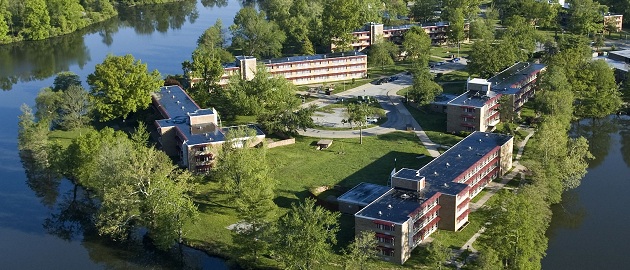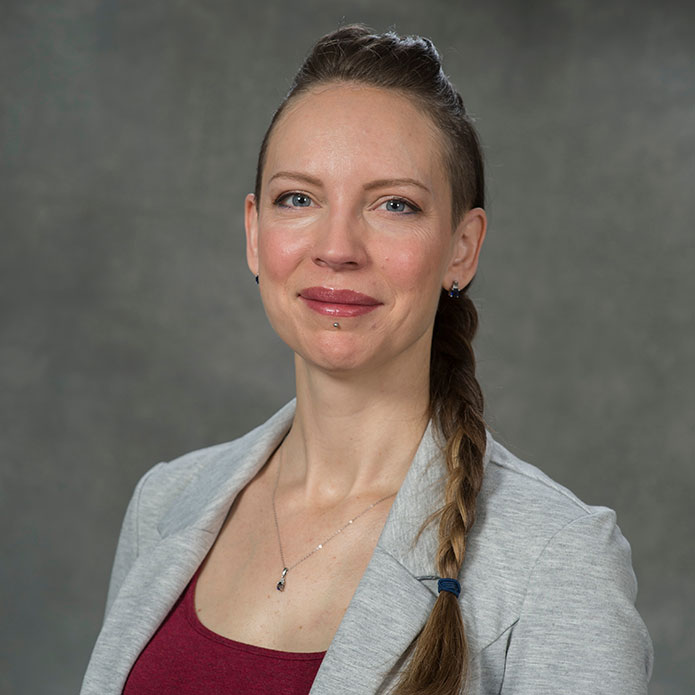Overview
The Curating Archaeological Collections field school offers intensive hands-on training working with pre-Columbian artifacts at the Center for Archaeological Investigations’ 9000 ft2 curation center. Here you will learn skills that can be applied to a career in curation, museums, collections, archives, and of course, field archaeology, all while doing detective work to solve the many unpredictable issues that arise when rehabilitating old collections. Expect to come across one-of-a-kind and exemplary artifacts that few people have the opportunity to handle. You will walk away from this experience with a good working knowledge of how to care for, organize, and track collections on a large-scale, develop a base in prehistoric artifact identification, database use and design, and legislation governing collections management in the US (including NAGPRA). Field trips to regional museums and other repositories, visits to local archaeological sites and excavations, lectures, discussion, and optional weekend excursions into beautiful southern Illinois enhance this experience.
Instructors
The directors welcome emails and inquiries about the research elements of this project. More general information (tuition, health insurance, and payment schedule) can be found under the ‘Students’ tab above. Any further questions may be addressed to IFR staff. Additional details about research, course schedule, travel, accommodation, and safety can be found on the syllabus. Contacting the directors or the IFR office is encouraged and appreciated. It may help you determine if this field school is a good fit for you.
Testimonials
This is a new IFR field school. No student testimonials are available at this time.
Tuition Includes:
- Cost of Instruction
- Cost of Academic Credit Units
- All local transportation
- Room & Board
Student Fees
This program requires an online application — there is a $25 fee to submit an application. Once admitted, a payment of the nonrefundable deposit fee is required to secure a place in the program(s). The Tuition balance (total program cost minus the deposit fee) must be paid prior to the Tuition deadline as listed above under “Course Details.” A $200 late fee will be added to all accounts not paid in full by the Tuition deadline.
Deposit: A nonrefundable $500 deposit fee is required to secure a seat in the program. This deposit is part of the total Tuition and NOT in addition to it.
Late Enrollment (payment deadline forward): A nonrefundable $600 deposit fee is required to secure a seat in the program. In addition, a $200 late fee will be added to all accounts not paid in full by the Tuition payment deadline.
Withdrawal & Cancellation Policy: If you paid the deposit fee but did not cancel your participation by the Tuition payment deadline, you are legally responsible for the full Tuition regardless of attendance at any IFR program. Please carefully read our Withdrawal & Cancellation Policy for further information.
Credit Card Processing Fee: A 3.5% processing fee is automatically incurred for all credit/debit card/online payments.
Academic Credit Opt Out: Students who wish to participate in an IFR field school without earning academic credit units may do so and receive the following discounts: $300 off a full program (4 or more weeks in length) or $200 off a short program (2-3 weeks in length).
Trip Cancellation Insurance: Please consider purchasing a travel interruption insurance policy that will cover your travel cost and the cost of the IFR program once you make a commitment to attend a field school.
Accommodations
Students are assigned to individual rooms with a shared bathroom between two rooms. Touched surfaces of the shared bathroom should be wiped down after each use with disinfectant.
Laundry facilities are available in the building, and at a nearby laundromat, but these are shared with the community. Washing machines should be wiped down by each student before use. A drop-off laundry service is also available within walking distance of the housing.
Students will maintain social distancing within the field school facilities (curation building) at assigned spaces and shall limit interaction with CAI staff working there (3 individuals, at most) to distanced conversations. CAI staff maintain their own work spaces, which students shall not use. Both CAI staff and students must wear masks while working in the building, and shall disinfect their work space at the end of each day.
Bathroom facilities in the curation building shall be disinfected twice daily, and all computers should be disinfected immediately after use. Students will share computers, but each computer will be limited to the same set of students (there are 4 computers between 8 students).
Timers will be set at various points throughout the day as reminders to complete these tasks, and to frequently wash hands.
A designated garbage can will be provided for used cleaning materials.
Kitchen facilities are available on site and are shared with the rest of the apartment complex, as are some other common areas in the building. All surfaces should be cleaned with disinfectant prior to and after preparing food. Food for breakfast, lunch, and dinner M-F will be provided by the project. Dinners will be communal, prepared by students in teams on a rotating basis. Vegetarian diets and most food allergies are easily accommodated. Vegan, gluten-free, and other specialty diet foods are easily available in Carbondale but may not be project-provisioned. Students are on their own for weekend meals, although weekly trips to the grocery store will be made and many local restaurants offer carry-out meal options within walking distance of the housing. Outdoor dining is allowed, but students should not eat/drink inside of restaurants or bars to protect the health of the group. Similarly, masks are required for any elective activity that might take place indoors (shopping, etc.) and venues that do not offer proper social distancing should not be visited. Such elective activities are strongly discouraged unless absolutely necessary.
Southern Illinois offers many wonderful outdoor activities that provide a safe environment for exploring the local community.


Travel Info
We suggest you hold off purchasing your airline ticket until six (6) weeks prior to the departure date. Natural disasters, political changes, weather conditions and various other factors may force the cancelation of a field school. The IFR monitors local conditions 6-7 weeks prior to the beginning of each program and makes a decision accordingly. This approach allows sufficient time to still purchase deeply discounted airline tickets.
Students have several options for meeting in Carbondale. If traveling via air, they may choose to fly into St. Louis (a 2-hour drive from Carbondale) and await pickup by staff, or fly into Chicago and travel via train (~ 5 hour trip to Carbondale) to await pickup by staff.
Alternately, students may be dropped off or drive a personal vehicle to Carbondale, meeting at the second location and time listed below.
Rendezvous points and times:
1) St. Louis Lambert International Airport
Meeting date: Sunday, July 11, 2021
Meeting point: Exit 17 near the baggage carousel
Meeting time: 2 PM
2) Carbondale Amtrak Station, 401 S Illinois Ave, Carbondale, IL 62901
Meeting date: Sunday, July 11, 2021
Meeting point: in front of train station
Meeting time: 3 PM
Note: trains arrive from Chicago to Carbondale at 1:45 PM and 3 PM and food and beverage service are available on the train. Changes in train schedules may result in a change in meeting time.
If you miss your connection or your flight is delayed, please call, text, or email project director immediately. A local emergency cell phone number will be provided to all enrolled students.
Student Safety
The IFR primary concern is with education. Traveling and conducting field research involve risk. Students interested in participating in IFR programs must weigh whether the potential risk is worth the value of education provided. While risk is inherent in everything we do, we do not take risk lightly. The IFR engages in intensive review of each field school location prior to approval. Once a program is accepted, the IFR reviews each program annually to make sure it complies with all our standards and policies, including student safety.
Students attending IFR international programs are covered by a comprehensive Health Insurance policy that includes physical illness or injury, mental or chronic conditions. No deductible and 100% of costs are covered up to $250,000. In addition, we provide Political and Natural Disaster Evacuation policy, which allow us to remove students from field school location if local conditions change. Our field school directors are scholars that know field school locations and cultures well and are plugged in into local communities and state institution structures.
Students attending IFR domestic programs (within the US) must have their own health insurance and provide proof upon enrollment. IFR field school directors are familiar with local authorities and if in need of evacuation, local emergency services and/or law enforcement will be notified and activated.
The IFR has strong, explicit and robust policy towards discrimination and harassment in the field. If students feel they cannot discuss personal safety issues with field school staff, the IFR operates an emergency hotline where students may contact IFR personnel directly.
Call us at 877-839-4374 or email us at info@ifrglobal.org if you have questions about the safety of any particular program.










